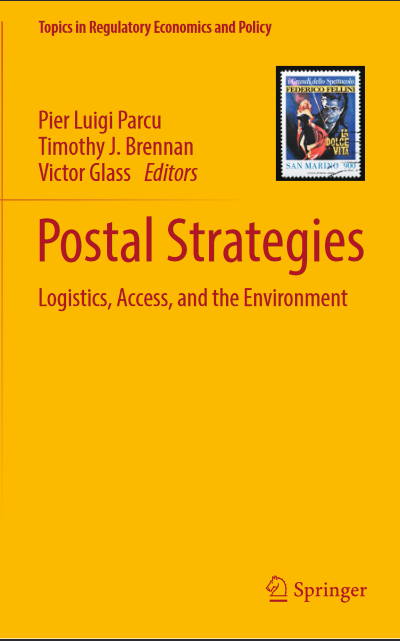Competition and regulatory authorities across the world are concerned about how digital marketplaces’ business models might facilitate anti-competitive behaviours. The EU is investigating Amazon, concerned about preferential treatment of Amazon’s retail business or of third-party sellers who use Amazon’s logistics and delivery services, and its potential to distort competition in online retail markets. The Polish competition authority UOKiK has launched proceedings against its major national marketplace, Allegro, to examine whether changes made to its commis- sion rules had granted Allegro unjustified advantages. In April 2021, China’s State Administration for Market Regulation (SAMR) imposed on Alibaba the highest ever fine since the enactment of its Anti-Monopoly Law (AML). SAMR found that Alibaba had abused its dominance by effectively forcing sellers to rely exclusively on its platform, thereby contravening Article 17(4) of the AML, which prohibits dominant companies from “allowing their trading counterparts to make transactions exclusively with themselves or with the undertakings designated by them” without objective justification. In November 2021, the Italian competition authority, AGCM, fined Amazon 1.13 billion EUR for having leveraged its dominant position in the Italian market for intermediation services on marketplaces to favour its own logistics service—Fulfilment by Amazon (FBA) to the detriment of independent postal and express delivery courier operators. Finally, postal regulators, who actively monitor the delivery sector, note that vertical integration coupled with platformization and the resulting intensity of control that dominant platforms exert over parcel delivery create problems that call for regulatory or legislative intervention (AGCOM, 2021; CNMC, 2020; ERPG, 2021) Analysis of dominant e-commerce platforms’ business models can inform our understanding of the ability and incentives such platforms may have to engage in leveraging and our interpretation of the resulting competitive effects. A common concern with leveraging, be it in the context of traditional vertical integration or within an ecosystem, is that where a company is dominant in one market and is itself active in another vertically related one it can have incentives for self-preferencing or for other forms of discrimination against competitors. Indeed, various behaviours of e-commerce platforms that are currently being investigated resemble Google’s self-preferencing conduct, which has been condemned as anti-competitive both by the European Commission1 and the General Court.2 Last but not least, while today the B2C e-commerce delivery market may still be largely considered as competitive (Parcu et al., 2022), concerns arise that despite its rapid growth driven by e-commerce, it may become excessively concentrated due to the role played by large e-commerce platforms in the delivery sector (ERGP, 2021; AGCOM, 2021). Hence, the question is whether e-commerce entry into last-mile delivery, bundling delivery with other services offered by online marketplaces raises serious competition issues, and if so, whether their assessment requires any adjustment
چکیده فارسی
مقامات رقابتی و نظارتی در سراسر جهان نگران این هستند که چگونه مدلهای تجاری بازارهای دیجیتال ممکن است رفتارهای ضدرقابتی را تسهیل کنند. اتحادیه اروپا در حال بررسی آمازون است، زیرا نگران رفتار ترجیحی با کسب و کار خرده فروشی آمازون یا فروشندگان شخص ثالثی است که از خدمات لجستیکی و تحویل آمازون استفاده می کنند، و پتانسیل آن برای تحریف رقابت در بازارهای خرده فروشی آنلاین. مرجع رقابت لهستانی UOKiK دادرسی را علیه بازار ملی اصلی خود، آلگرو، آغاز کرده است تا بررسی کند که آیا تغییرات ایجاد شده در قوانین کمیسیون، مزایای غیرقابل توجیهی به آلگرو داده است یا خیر. در آوریل 2021، اداره دولتی تنظیم بازار چین (SAMR) بالاترین جریمه را از زمان تصویب قانون ضد انحصار (AML) علی بابا اعمال کرد. SAMR دریافت که علی بابا از تسلط خود سوء استفاده کرده و فروشندگان را مجبور کرده است تا منحصراً به پلتفرم خود تکیه کنند، در نتیجه با ماده 17 (4) AML که شرکتهای مسلط را از «اجازه دادن به همتایان تجاری خود برای انجام معاملات منحصراً با خود یا با شرکتها منع میکند، نقض کرده است. تعیین شده توسط آنها» بدون توجیه عینی. در نوامبر 2021، مرجع رقابت ایتالیا، AGCM، آمازون را به دلیل استفاده از موقعیت مسلط خود در بازار ایتالیا برای خدمات واسطه گری در بازارها به منظور نفع خدمات لجستیکی خود - تکمیل توسط آمازون (FBA) به ضرر پست مستقل، 1.13 میلیارد یورو جریمه کرد. و اپراتورهای پیک تحویل اکسپرس. در نهایت، رگولاتورهای پستی، که فعالانه بر بخش تحویل نظارت میکنند، خاطرنشان میکنند که یکپارچگی عمودی همراه با پلتفرمسازی و در نتیجه شدت کنترلی که پلتفرمهای غالب بر تحویل بسته اعمال میکنند، مشکلاتی را ایجاد میکند که نیاز به مداخله نظارتی یا قانونی دارد (AGCOM، 2021؛ CNMC، 2020; ERPG، 2021) تجزیه و تحلیل مدلهای کسبوکار غالب پلتفرمهای تجارت الکترونیکی میتواند درک ما را از توانایی و انگیزههایی که چنین پلتفرمهایی ممکن است برای مشارکت در اهرمسازی و تفسیر ما از اثرات رقابتی ناشی از آن داشته باشند، نشان دهد. یک نگرانی رایج در مورد اهرم، چه در زمینه یکپارچگی عمودی سنتی و چه در یک اکوسیستم، این است که در جایی که یک شرکت در یک بازار مسلط است و خود در بازار دیگری که به طور عمودی مرتبط است فعال است، میتواند انگیزههایی برای ترجیح خود یا سایرین داشته باشد. اشکال تبعیض علیه رقبا در واقع، رفتارهای مختلف پلتفرمهای تجارت الکترونیکی که در حال حاضر مورد بررسی قرار میگیرند، شبیه رفتار ترجیحی گوگل است که هم توسط کمیسیون اروپا1 و هم دادگاه عمومی به عنوان ضدرقابتی محکوم شده است. -بازار تحویل تجارت ممکن است همچنان تا حد زیادی رقابتی در نظر گرفته شود (Parcu et al., 2022)، این نگرانی وجود دارد که علیرغم رشد سریع آن که توسط تجارت الکترونیک هدایت می شود، ممکن است به دلیل نقشی که پلتفرم های تجارت الکترونیکی بزرگ در آن بازی می کنند، بیش از حد متمرکز شود. بخش تحویل (ERGP، 2021؛ AGCOM، 2021). از این رو، سؤال این است که آیا ورود تجارت الکترونیک به تحویل آخرین مایل، تحویل همراه با سایر خدمات ارائه شده توسط بازارهای آنلاین، مسائل رقابتی جدی را ایجاد می کند، و اگر چنین است، آیا ارزیابی آنها نیاز به تعدیل دارد یا خیر
ادامه ...
بستن ...
Editors
Pier Luigi Parcu
Centre for a Digital Society
European University Institute
Florence, Italy
Victor Glass
School of Public Policy
Rutgers Business School
Newark, NJ, USA
Timothy J. Brennan
School of Public Policy
University of Maryland, Baltimore County
Baltimore, MD, USA
ISSN 2730-7468 ISSN 2730-7476 (electronic)
Topics in Regulatory Economics and Policy
ISBN 978-3-031-25361-4 ISBN 978-3-031-25362-1 (eBook)
https://doi.org/10.1007/978-3-031-25362-1
© The Editor(s) (if applicable) and The Author(s), under exclusive license to Springer Nature
Switzerland AG 2023
This work is subject to copyright. All rights are solely and exclusively licensed by the Publisher, whether
the whole or part of the material is concerned, specifically the rights of translation, reprinting, reuse
of illustrations, recitation, broadcasting, reproduction on microfilms or in any other physical way, and
transmission or information storage and retrieval, electronic adaptation, computer software, or by similar
or dissimilar methodology now known or hereafter developed.
The use of general descriptive names, registered names, trademarks, service marks, etc. in this publication
does not imply, even in the absence of a specific statement, that such names are exempt from the relevant
protective laws and regulations and therefore free for general use.
The publisher, the authors, and the editors are safe to assume that the advice and information in this book
are believed to be true and accurate at the date of publication. Neither the publisher nor the authors or
the editors give a warranty, expressed or implied, with respect to the material contained herein or for any
errors or omissions that may have been made. The publisher remains neutral with regard to jurisdictional
claims in published maps and institutional affiliations.
This Springer imprint is published by the registered company Springer Nature Switzerland AG
The registered company address is: Gewerbestrasse 11, 6330 Cham, Switzerlan
ادامه ...
بستن ...
Contents
Competitive Strategies of Marketplaces Vis-À-Vis Logistic
Choices: Issues of Efficiency and Competition . . . . . . . . . . . . . . . . . . . . . . . . 1
Pier Luigi Parcu, Anna Renata Pisarkiewicz, and Chiara Carrozza
Lessons from the Experience of Telecommunications Regulation
for Regulation in the EU Package Delivery Industry, with Focus
on Access Regulation . . . . . . . . . . . . . . . . . . . . . . . . . . . . . . . . . . . . . . . . . . . . . . 15
Debra Aron and Geoff Edwards
Self-Provision by Online Platforms Vertically Integrated
into Delivery Activities . . . . . . . . . . . . . . . . . . . . . . . . . . . . . . . . . . . . . . . . . . . . . 29
Alberta Corona, Claudio Lorenzi, and Anna Mucci
The Confluence of Competition Law, Consumer Protection,
and Sector-Specific Regulation in the Postal, Delivery, and Related
Sectors . . . . . . . . . . . . . . . . . . . . . . . . . . . . . . . . . . . . . . . . . . . . . . . . . . . . . . . . . . . 43
John Hearn
Double Jeopardy Between Regulatory and Competition
Proceedings: The bpost Judgment and the Digital Markets Act . . . . . . . . . 59
Alessandra Fratini
Twenty-Five Years of the National Postal Regulators in the EU:
A Critical Review . . . . . . . . . . . . . . . . . . . . . . . . . . . . . . . . . . . . . . . . . . . . . . . . . . 71
Mateusz Chołodecki
Locked into an Access Mindframe? Reflections on Access
Regulation in Postal and Delivery Based on the Case of
Parcel Lockers . . . . . . . . . . . . . . . . . . . . . . . . . . . . . . . . . . . . . . . . . . . . . . . . . . . . 85
M. Cerpickis, S. Tizik, A. M. Boivie, B. Basalisco, and H. B. Okholm
Do We Need Regulation for Parcel Lockers? . . . . . . . . . . . . . . . . . . . . . . . . . 101
Xavier Ambrosini, Alice Bermont-Vialatte, and Marine Lefort
ix
x Contents
A Universal Support Fund for Postal Services in the United States . . . . . 115
Victor Glass, A. Nicita, and S. Gori
Incentives of Compensating USO Net Costs . . . . . . . . . . . . . . . . . . . . . . . . . . 127
Felix Gottschalk, Urs Trinkner, and Eva Zuberbühler
Public Funding and Industrial Synergies: How They Impact
on the Calculation of the Net Cost of the USO? . . . . . . . . . . . . . . . . . . . . . . . 141
Emanuele Frezza
Can Parcel Growth Support the Sustainability of the USO? . . . . . . . . . . . 155
C. Strobel, L. Brouer, F. Gotzens, G. Houpis, and J. M. Rodriguez
E-commerce’s Effects on the Turkish Postal Market: From
Classical to New Business Models . . . . . . . . . . . . . . . . . . . . . . . . . . . . . . . . . . . 169
Talat Güçlü, Betül Yılmaz, Müberra O ̆guz,
Muhammed Can Büyüktanır, and Ozhan Zurel
Compensation of Net Costs Generated by SGEIs. Examples
from Different European Network Industries . . . . . . . . . . . . . . . . . . . . . . . . 183
F. Russo, S. Romito, F. Leone, F. Spadaccia, and S. Gori
E-commerce and Parcel Delivery: Environmental Policy
with Green Consumers . . . . . . . . . . . . . . . . . . . . . . . . . . . . . . . . . . . . . . . . . . . . . 193
Claire Borsenberger, Helmuth Cremer, Denis Joram,
Jean-Marie Lozachmeur, and Estelle Malavolti
Using Pricing as a Tool to Achieve Carbon Neutrality: Implications
for the United States Postal Service . . . . . . . . . . . . . . . . . . . . . . . . . . . . . . . . . . 211
V. Ian Stanford, Lawrence Buc, Adam Houck, and Ethan Jost
The Environmental Footprint of Home and Out-of-Home Parcels
Delivery . . . . . . . . . . . . . . . . . . . . . . . . . . . . . . . . . . . . . . . . . . . . . . . . . . . . . . . . . . 227
Muriel Barnéoud, Claire Borsenberger, and Antoine Doussaint
Supporting Postal Services Through Location-Based Fees . . . . . . . . . . . . . 239
Timothy J. Brennan
Allocating Fixed Costs of the Outdoor Delivery: A Cooperative
Game Approach . . . . . . . . . . . . . . . . . . . . . . . . . . . . . . . . . . . . . . . . . . . . . . . . . . . 253
Olga Bohorquez Suarez and Léa Munich
On Efficient Rate Design . . . . . . . . . . . . . . . . . . . . . . . . . . . . . . . . . . . . . . . . . . . 269
Edward S. Pearsall
Measuring and Communicating a Universal Service Provider’s
Wider Economic Value: Swiss Post’s Example . . . . . . . . . . . . . . . . . . . . . . . . 283
Felix Gottschalk and Alexandra Lehmann
Contents xi
How the COVID-19 Crisis is Impacting Postal Markets? A New
Assessment One Year Later . . . . . . . . . . . . . . . . . . . . . . . . . . . . . . . . . . . . . . . . 301
Antonin Arlandis, Catherine Cazals, Eric Gautier, and Nour Meddahi
UK Parcel Market Trends in the Pre- and Post-COVID
Environment: An Initial Assessment . . . . . . . . . . . . . . . . . . . . . . . . . . . . . . . . 313
Catherine Cazals, Thierry Magnac, Jonathan Pope, and Soterios Soteri
Exploring the Use of Control Theory to Describe and Assess
the UK’s Postal Regulatory Framework, Including Lessons That
Can Be Learnt and Applied from This Tool for Regulation . . . . . . . . . . . . 327
Matthew R. Thomas and Philip Groves
On the Prediction of the Postal Service’s Marginal and Total
Operating Costs . . . . . . . . . . . . . . . . . . . . . . . . . . . . . . . . . . . . . . . . . . . . . . . . . . . 343
Lyudmila Y. Bzhilyanskaya, Margaret M. Cigno, and Soiliou D. Namoro
Logistics Constraints for International E-commerce . . . . . . . . . . . . . . . . . . 359
Mauro Boffa
Transparency Initiatives in the Belgian Postal Sector . . . . . . . . . . . . . . . . . . 371
Dirk Appelmans, Stijn Braes, Pierre-Yves Charles, and Ozhan Zurel
ادامه ...
بستن ...










